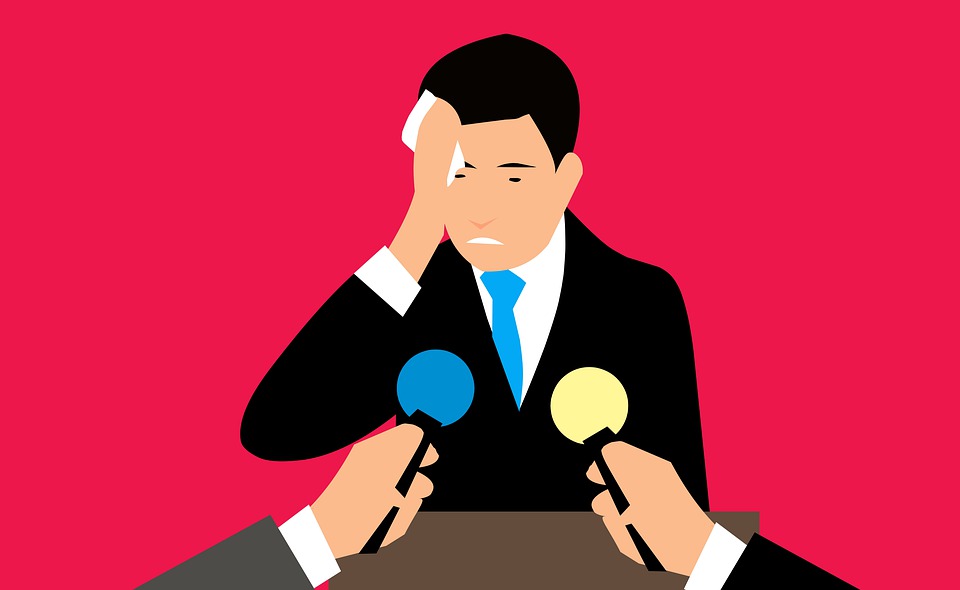Performance anxiety is a common issue affecting people from all walks of life. For some, it can become so overwhelming that it negatively impacts their daily lives. Fortunately, there are several effective approaches to treating performance anxiety. In this blog post, we will explore performance anxiety treatment options, including therapy, medication, and self-care. We will also explore some benefits of seeking help for performance anxiety.
Contents
What Is Performance Anxiety?
 Performance anxiety, also known as stage fright, is a type of anxiety that occurs in situations where a person is required to perform in front of others. This can include public speaking, performing in a play or musical, playing a musical instrument, singing, or even participating in a sports event. Symptoms may include sweating, trembling, rapid heartbeat, nausea, dizziness, dry mouth, forgetfulness, and feelings of dread or panic.
Performance anxiety, also known as stage fright, is a type of anxiety that occurs in situations where a person is required to perform in front of others. This can include public speaking, performing in a play or musical, playing a musical instrument, singing, or even participating in a sports event. Symptoms may include sweating, trembling, rapid heartbeat, nausea, dizziness, dry mouth, forgetfulness, and feelings of dread or panic.
Can Performance Anxiety Go On Its Own?
In some cases, performance anxiety may resolve on its own, especially if it is a mild or occasional experience. However, if the anxiety is severe or persistent, it is less likely to go away without treatment. Performance anxiety treatment is crucial as symptoms can become more severe and interfere with an individual’s ability to perform or engage in daily activities. Additionally, untreated anxiety can lead to other mental health conditions, such as depression or substance abuse. Seeking support from a mental health professional can help individuals manage performance anxiety and improve their overall mental health and well-being.
Therapy Treatment For Performance Anxiety
There are several treatments available for performance anxiety or stage fright, including:
Cognitive-behavioral therapy (CBT)
CBT is a type of performance anxiety treatment. This type of therapy involves working with a therapist to identify and change negative thought patterns and behaviors that contribute to performance anxiety. It can be effective in reducing anxiety symptoms during a stage performance.
Exposure therapy
This type of therapy involves gradually exposing the person to the situations that trigger their anxiety, in a controlled and supportive environment. Over time, this can help desensitize them to the anxiety-provoking situation. The patient is exposed to mild pressures and triggers so that fear associated with it can be reduced.
Mindfulness-based therapies

Mindfulness-based therapies, such as mindfulness-based stress reduction (MBSR) and acceptance and commitment therapy (ACT), can help you learn to accept and manage difficult emotions, including anxiety, in a non-judgmental way. It also involves a combination of mindfulness practices such as Yoga, meditation, exercise, etc. These help the mind to relax and broaden one’s perspective.
Hypnotherapy
Hypnotherapy involves inducing a trance-like state to help you access your subconscious mind and make positive changes in thought patterns and behaviors. Hypnotherapy can be effective for performance anxiety by helping you relax and visualize successful performances.
Biofeedback
Biofeedback involves using technology to measure and provide feedback on physical responses to stress, such as heart rate and muscle tension. This can help you learn to control these physical responses and reduce anxiety in performance situations.
Medication Treatment For Performance Anxiety
Here are some points about medication treatment for performance anxiety:
Beta-blockers
Beta-blockers are a class of medication that can reduce physical symptoms of anxiety, such as rapid heartbeat and shaking. They are commonly used to treat performance anxiety, such as in musicians or public speakers. Beta-blockers can help reduce the physical symptoms of anxiety without affecting mental clarity or performance.
Benzodiazepines
Benzodiazepines are another class of medication that can be used to treat performance anxiety. They work by increasing the activity of a neurotransmitter called GABA in the brain, which can help to reduce anxiety. However, benzodiazepines can also cause drowsiness and impair mental clarity, which can negatively affect performance.
Selective serotonin reuptake inhibitors (SSRIs)

SSRIs are a type of antidepressant medication that can also be used to treat performance anxiety. They work by increasing the level of the neurotransmitter serotonin in the brain, which can help to regulate mood and reduce anxiety. However, SSRIs can take several weeks to start working, and they can also have side effects such as nausea, insomnia, and sexual dysfunction.
Other medications
Other medications that may be used to treat performance anxiety include tricyclic antidepressants, buspirone, and pregabalin. These medications work in different ways to reduce anxiety, and their effectiveness and side effects may vary.
Tips For Self- Recovery
Here are some tips for self-recovery for performance anxiety:
- Practice relaxation techniques: Learning relaxation techniques such as deep breathing, progressive muscle relaxation, and meditation can help reduce the physical symptoms of anxiety and help you feel calmer and more centered before a performance.
- Positive self-talk: Negative self-talk can fuel anxiety and reduce self-confidence. Instead, practice positive self-talk by affirming your abilities and focusing on past successes.
- Visualize success: Visualization is a technique where you mentally rehearse a successful performance in your mind. This can help you feel more prepared and confident when it comes time to perform.
- Gradual exposure: Gradually exposing yourself to the situation that causes anxiety can help desensitize you to it over time. For example, if you are anxious about public speaking, start by practicing in front of a small group of friends or family members, and gradually work your way up to larger audiences.
- Seek support: Don’t be afraid to seek support from friends, family, or a mental health professional. Talking about your fears and concerns can help you feel less alone and more empowered to manage your anxiety.
- Take care of your physical health: Getting enough sleep, eating a healthy diet, and exercising regularly can all help reduce stress and anxiety and improve your overall well-being.
- Challenge negative thoughts: Negative thoughts can contribute to anxiety and self-doubt. Challenge these thoughts by asking yourself if they are based in reality, and try to reframe them in a more positive and realistic light.
Conclusion
In conclusion, performance anxiety can be a challenging and distressing experience for individuals who need to perform in front of others, such as in public speaking, musical performances, or sports events. However, there are various effective treatments available for managing performance anxiety, including medication, therapy, and self-care practices. It’s important to seek support from a mental health professional if you’re experiencing severe or persistent performance anxiety. With the right treatment and support, individuals can overcome performance anxiety and perform with confidence and ease.
For more information, please contact MantraCare. Anxiety is a common mental health condition characterized by persistent feelings of worry, fear, and apprehension. If you have any queries regarding Online Anxiety Counseling experienced therapists at MantraCare can help: Book a trial Anxiety therapy session.


